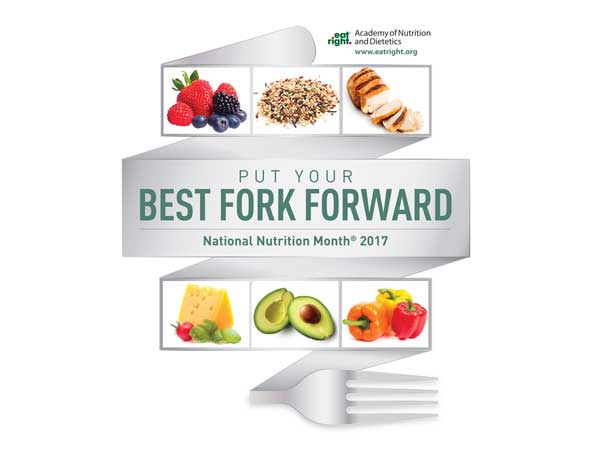
FAYETTEVILLE, Ark. – March is National Nutrition Month, and faculty from the University of Arkansas’ human nutrition program in the Dale Bumpers College of Agricultural, Food and Life Sciences have suggestions to help you limit added sugars, sodium and solid (saturated and trans) fats from your diet.
Diets high in sugar, sodium and solid fats can raise blood pressure and lead to heart disease. Too much sugar can stimulate the liver to put more harmful fats in the bloodstream. Too much sodium may increase the risk of stroke, heart failure, osteoporosis, stomach cancer and kidney disease. Saturated and trans fats can raise cholesterol levels in blood.
“Diets high in sugar may promote the development of metabolic disease,” said assistant professor of human nutrition Jae Kyeom Kim. “Fructose is a major form of sugar naturally present in fruits and vegetables. What matters is how much fructose, or any sugar, you consume.”
To limit sugar:
- Eat fruit instead of sweets for dessert more often
- Drink low-fat or fat-free milk or water instead of sugar-sweetened beverages
- Choose foods and drinks with less added sugar by using the nutrition facts label
“Generally, it is not a problem if fructose is consumed through fruits and vegetables because their levels are not abnormally high. A medium sized banana contains about five grams of fructose whereas a 20-ounce soft drink, sweetened with high fructose corn syrup, has about 35 grams of fructose, in addition to another 30 grams of glucose. Since soft drinks are normally consumed with other dishes, it can easily add more calories and sugars. Fructose, a major dietary sugar, directly disrupts lipid and carbohydrate metabolism, and indirectly promotes positive energy balance (more calories consumed), which increases body weight and fat accumulation.”
To limit sodium:
- Use the nutrition facts label to compare foods and drinks
- Try lower sodium versions of foods
- Flavor foods with less salt when cooking or at the table
“The 2015-2020 Dietary Guidelines for Americans recommend consuming less than 2,300 milligrams of sodium per day,” said human nutrition instructor Nancy Buckley. “In the U.S., about 70 percent of sodium we eat comes from processed foods. About 15 percent comes from salt added while cooking and at the table, and 10 percent from natural content in foods. A person can reduce sodium in their diet by reducing the amount of processed foods they eat. Choosing low sodium products, rinsing canned beans and vegetables, and making your own spice blends, leaving out the salt, will also reduce sodium. Spices, herbs, citrus and chili peppers can add flavor to foods in place of salt. It is important to read nutrition facts labels to compare sodium content and choose products lower in content.”
To limit saturated and trans fats:
- Choose low-fat and fat-free milk and dairy products
- Eat lean sources of protein foods
- Include more plant-based oils in place of solid fats
- Limit sweet desserts and snacks
“Good examples of lean protein are skinless chicken and fish that can be baked, broiled or pan-fried in a little olive oil,” said Sabrina Trudo, associate professor of human nutrition and holder of the 21st Century Endowed Chair in Human Environmental Sciences. “Cuts of beef and pork can be trimmed of visible fat. Leaner cuts or extra lean ground meat may induce sticker shock, however, you typically get more actual meat and protein per pound instead of fat and will experience less cooking loss. You get more for your money.”
Trudo also suggests plant-based proteins such as quinoa, legumes and soy. Quinoa is cooked and served similar to rice, but is high in protein. Examples of legumes, which are typically an inexpensive source of protein, are black beans, black-eyed peas, kidney beans, lima beans and lentils. Soy options include edamame and soy nuts.
“Lean protein sources are important because animal foods, the typical protein source in the U.S., can be high in saturated fat,” said Trudo. “It's the saturated fat that can negatively impact cholesterol levels in blood, leading to cardiovascular problems.”
National Nutrition Month is a nutrition education and information campaign created by the Academy of Nutrition and Dietetics to help consumers make informed food choices, and develop sound eating and physical activity habits. The theme for the month is “Put Your Best Fork Forward,” emphasizing the idea that everyone can make healthier food choices.
About the Dale Bumpers College of Agricultural, Food and Life Sciences: Bumpers College provides life-changing opportunities to position and prepare graduates who will be leaders in the businesses associated with foods, family, the environment, agriculture, sustainability and human quality of life; and who will be first-choice candidates of employers looking for leaders, innovators, policy makers and entrepreneurs. The college is named for Dale Bumpers, former Arkansas governor and longtime U.S. senator who made the state prominent in national and international agriculture.
About the University of Arkansas: The University of Arkansas provides an internationally competitive education for undergraduate and graduate students in more than 200 academic programs. The university contributes new knowledge, economic development, basic and applied research, and creative activity while also providing service to academic and professional disciplines. The Carnegie Foundation classifies the University of Arkansas among only 2 percent of universities in America that have the highest level of research activity. U.S. News & World Report ranks the University of Arkansas among its top American public research universities. Founded in 1871, the University of Arkansas comprises 10 colleges and schools and maintains a low student-to-faculty ratio that promotes personal attention and close mentoring.
Topics
Contacts
Robby Edwards, director of communications
Bumpers College
479-575-4625,